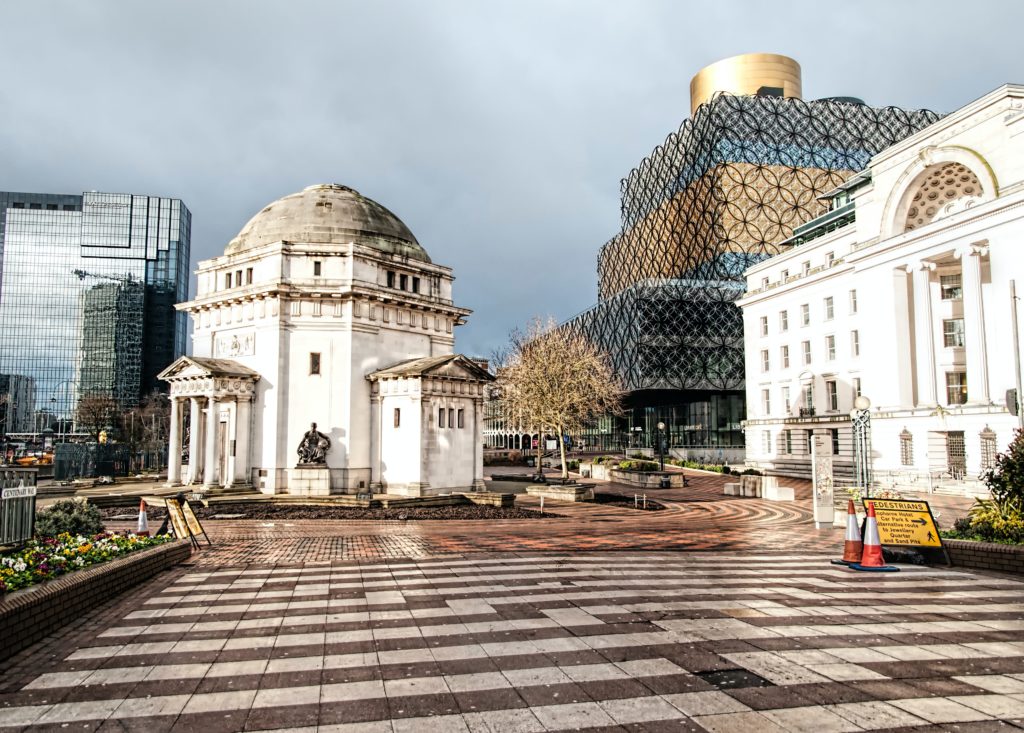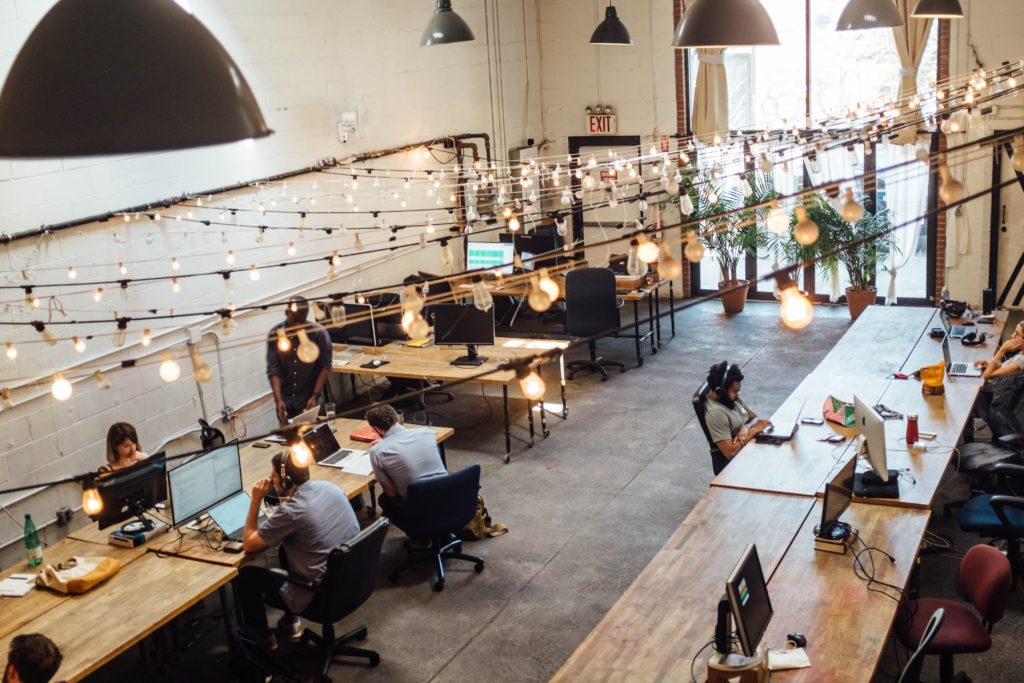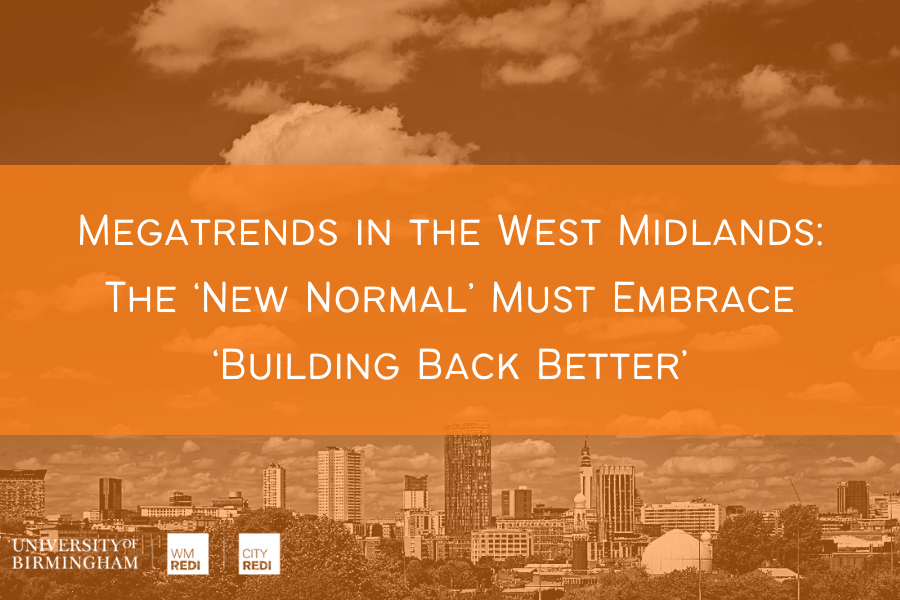Johannes Read delves into how the Covid-19 pandemic has changed the way people and businesses work in the city centre as the UK emerges from the crisis. This article is part of a larger project looking at Megatrends in the West Midlands. Megatrends are major movements or patterns or trends that are having a transformative impact on business, economy, society, cultures and personal lives. The project examines some of these megatrends in a series of provocations, podcasts and a report. View the full provocation.
The trend for greater homeworking for people working in business, professional and financial services (BPFS) sectors, which was already underway pre-pandemic, has accelerated.
There is also a trend in increasing residential and leisure uses of the city centre. This presents an opportunity for the Retail, Hospitality, & Leisure (RHL) sector to build an experience that will continue to attract people into the centre, as the yearning for social interaction has not waned.
To meet the changes facing the future city, there is an imperative to ‘build back better. Place-based anchor organisations, like Business Improvement Districts (BIDS), local councils, universities and business support providers have a key role, alongside BPFS and RHL businesses, to take a stake in the future city centre. They can use their scale and influence to invest and ensure that the wealth generated can make a difference to the people of the city.

There are two predominant views on the future of city centre business districts after Covid-19 around: (1) working with ‘the new normal and (2) ‘building back better. These views are not incompatible: it is imperative that ‘the new normal’ embraces the notion of ‘building back better.
This piece argues that ‘the new normal is no more than an acceleration in current trends. Increased homeworking for the BPFS sectors and an increase in the leisure, entertainment, and residential functions of city centres were already occurring pre-pandemic. With a continuation of those trends, there is an opportunity for Retail, Hospitality & Leisure (RHL) sectors to benefit from the city centre becoming more of a ‘playground’ (Greater London Authority, 2021).
‘Building back better is not just desirable but a necessity. Covid-19 has reinforced the importance of the social and well-being economy. Future working practices should place well-being at the heart, such as the Real Living Wage, secure working contracts, and full sick pay.
‘The New Normal’ Means ‘Building Back Better’ Than We Had Before
Adjusting Office Space
Before the Covid-19 pandemic, there was already a trend for increased homeworking in the BPFS sector. Even before the pandemic, hybrid working was likely to become the norm, with workers in the city centre office for part of the week, and working remotely the rest of the week. The networking and learning made by being with colleagues mean there is still an attraction of the office (BBC 2020). Reconfiguring the office to become a high-quality destination for employees with more breakout spaces and networking areas could reignite the attraction of the office.
There is an opportunity for place-based anchor organisations, such as local councils, universities, and BIDs, to take a lead in developing a modern office redevelopment. Local Authority Trading Companies (LATCOs) could be an opportunity for local authorities to push ahead and upgrade the office space for small businesses, with the additional profits can be reinvested into the local area.

The ‘Good Work’ Imperative
There is a risk of continued polarisation of high-wage BPFS workers and precarious and low-pay work of RHL sectors in the future city. Over the last decade, there have been widening inequalities in incomes and health between those working in higher-paid BPFS and those in lower-paid RHL jobs (Renew Normal, 2021). Precarious work has impacted health inequalities, exacerbated by Covid-19.
There is a requirement for an alternative approach to work focusing on ‘good’ work, that has a material impact on the health and wellbeing of workers (Living Wage Foundation, 2021). ‘Building back better’ requires a commitment to provide a real living wage and commitment to providing regular working hours and good working conditions. In turn, this can lead to improved worker productivity, improved staff retention and improved wellbeing – so making progress in ‘building back better’.
Finding Effective Interventions in the West Midlands
Generating the capital to adapt office and retail properties fit for the co-working and business incubator hubs of the future may be a challenge for smaller businesses. Yet place-based anchor organisations such as local councils, BIDs, universities and others, do have the scale and scope to meet the demands of the reorganisation of the BPFS sector. Encouraging anchor organisations to purchase and redevelop city centre properties can ensure that profits generated can be reinvested into the local area. The regulatory landscape should be conducive to encouraging the wealth created in future growth to be circulated in the local area.
One such intervention is to designate a city centre of the BID area as a Living Wage Place (Living Wage Foundation, 2021), where businesses in that location look to provide jobs at a real living wage and a regular number of working hours for their staff.
The business support landscape should be conducive to ensuring that businesses looking to adjust their business models to provide a real living wage and secure hours for their staff are able to do so. Place-based organisations in and around the city centre can champion the benefits of good quality work on improving staff retention, productivity, and wellbeing to ensure that adapting to the trends of the future can help Birmingham build back better.
Key Policy Messages
- Large place-based organisations, such as BIDs, councils, and universities can take a stake in the future business and leisure space use of the future city centre. These organisations should work to reconfigure the city centre as a destination for high-quality office space, as well as greater leisure, residential, and entertainment. By taking ownership of office spaces themselves, the profits generated can ensure to be reinvested for the wider benefit of the city centre.
- Business support is required to provide training for businesses adapting their business models to meet the demands of flexible working.
- The Covid-19 pandemic has reinforced the need for health and wellbeing to be part of business practices. Businesses, particularly in the retail, hospitality, and leisure sectors, should be prioritised to help adapt their business models to embed wellbeing into their business practices.
This article is part of a larger project looking at Megatrends in the West Midlands. Megatrends are major movements or patterns or trends that are having a transformative impact on business, economy, society, cultures and personal lives.
The project examines some of these megatrends in a series of provocations, podcasts and a report.
This blog was written by Hannes Read, Project Policy and Data Analyst, City-REDI / WMREDI, University of Birmingham.
Disclaimer:
The views expressed in this analysis post are those of the authors and not necessarily those of City-REDI or the University of Birmingham.

